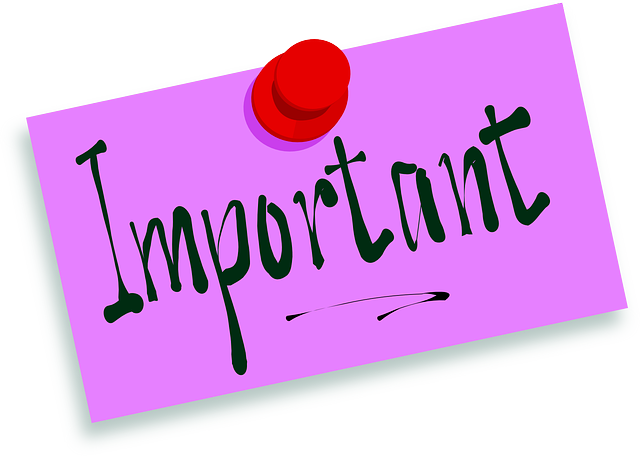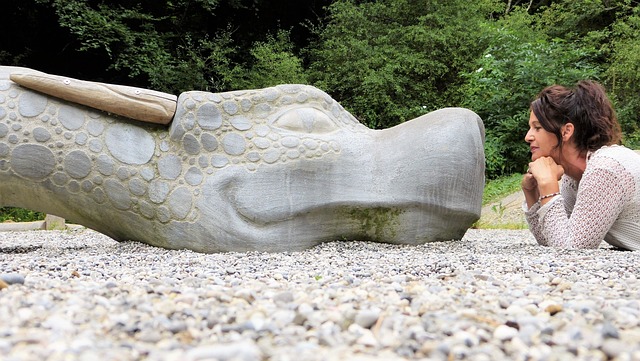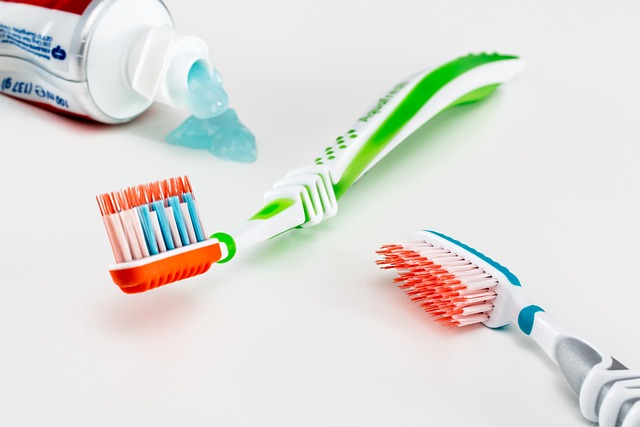Post-Tooth Extraction: Swallowing Saliva – What You Should Know
Post-Tooth Extraction: Swallowing Saliva – What You Should Know
Welcome to our informative article on the topic of swallowing saliva after a tooth extraction! We understand that the aftermath of a dental procedure can sometimes be confusing and overwhelming. It’s common to wonder what is normal and what might require further attention. In this friendly guide, we will walk you through everything you need to know about managing saliva after a tooth extraction, providing you with the peace of mind you deserve during your recovery journey. So, sit back, relax, and let us answer all your pressing questions!
1. What happens after a tooth extraction?
After a tooth extraction, it is important to take proper care of your mouth to ensure a smooth and speedy recovery. Here are a few important things to keep in mind:
- Bleeding: It is normal to experience some bleeding for the first 24 hours after the extraction. To control the bleeding, place a clean piece of gauze over the extraction site and bite down firmly for about 30 minutes. Be sure to change the gauze pads as necessary and avoid rinsing your mouth vigorously.
- Pain and swelling: Some discomfort and swelling is also common after a tooth extraction. To manage pain, your dentist may prescribe pain medications or recommend over-the-counter pain relievers. The application of an ice pack can help reduce swelling. Remember to follow the recommended dosage instructions and report any severe or prolonged pain to your dentist.
- Oral hygiene: While it is important to maintain oral hygiene, avoid brushing the extraction site for the first 24 hours to prevent irritation. After that, gently clean the area with a soft-bristled toothbrush, being careful not to disturb the blood clot that forms. Rinse your mouth with a saltwater solution multiple times a day to help keep the extraction site clean and promote healing.
It is equally important to follow your dentist’s instructions for post-extraction care. Avoid smoking, spitting forcefully, or using a straw for at least 24 hours as these activities can dislodge the blood clot and delay healing. Stick to soft foods and avoid chewing on the extraction site. If you experience excessive bleeding, severe pain, or any other unexpected symptoms, contact your dentist immediately. By following these guidelines, you can ensure a smoother recovery and get back to your normal routine in no time!

2. The importance of swallowing saliva after a tooth extraction
Swallowing saliva after a tooth extraction might seem like a small detail, but it plays a crucial role in the healing process. Properly managing saliva post-extraction can prevent complications and ensure a smooth recovery. Here are a few reasons why swallowing saliva is important:
1. Avoiding blood clot disruption: After a tooth is extracted, a blood clot forms to protect the socket and aid in healing. Swallowing saliva gently ensures the clot remains intact, preventing a condition called dry socket, which can be painful and delay healing.
2. Minimizing the risk of infection: Saliva contains bacteria and food particles. By swallowing properly, you help keep the mouth cleaner and reduce the likelihood of introducing harmful bacteria into the extraction site. Remember, maintaining good oral hygiene is essential for a speedy recovery!

3. Understanding the role of saliva in the healing process
Saliva, commonly known as spit, plays a crucial role in the healing process of the body. It is not just a liquid in our mouth, but a powerful agent that aids in the overall health and well-being of our oral cavity. Here are some key points to help you understand the significance of saliva in the healing process:
1. Moisturizes and cleanses: Saliva acts as a natural moisturizer, keeping the oral tissues moist and preventing dryness. It also helps in washing away food debris, bacteria, and dead cells, thus promoting cleanliness and reducing the risk of infections.
2. Promotes wound healing: Saliva contains various components, including growth factors and enzymes, that aid in the healing of oral wounds, such as cuts, ulcers, and gum injuries. These substances help to accelerate the regeneration of damaged tissues, reducing the recovery time and minimizing the chances of complications.
3. Anti-microbial properties: Saliva possesses natural antimicrobial properties that help fight against harmful bacteria and prevent the colonization of pathogens in the oral cavity. It contains enzymes like lysozyme and lactoferrin, which combat bacteria by breaking down their cell walls and interfering with their growth.
4. Buffering effect: Saliva acts as a buffer by neutralizing acids produced by bacteria, food, or beverages. This buffering effect helps maintain a balanced pH level in the mouth, preventing tooth decay and enamel erosion.
It is important to keep our saliva flowing for optimal oral health and healing. Maintaining proper hydration, avoiding medications that reduce saliva production, and practicing good oral hygiene contribute to a healthy saliva production and, consequently, a faster healing process. Let’s appreciate the amazing role saliva plays in our oral health and healing!
4. Tips to manage swallowing saliva after a tooth extraction
After a tooth extraction, managing the discomfort and pain that can follow the procedure is important for a speedy recovery. One of the most common challenges patients face is managing the excessive saliva that can occur during the healing process. To help you out, here are some useful :
- Swish cold water: Swishing cold water in your mouth can help reduce saliva production and provide temporary relief. Spit out the water gently into a sink or cup and repeat as needed throughout the day.
- Use a clean towel or tissue: Keep a clean towel or tissue at hand to gently blot excess saliva throughout the day. Be careful not to apply too much pressure to the extraction site.
- Suck on ice chips: Ice chips can help numb the area and decrease saliva production. Suck on small ice chips and let them melt slowly in your mouth.
Remember, it’s crucial to avoid any activities that could harm the healing process, such as spitting forcefully or using a straw. Additionally, maintaining good oral hygiene by gently brushing your teeth and tongue using a soft-bristle toothbrush can aid in reducing saliva production. By following these tips, you can effectively manage the excess saliva and ensure a smooth recovery after your tooth extraction.

5. Common concerns and misconceptions about swallowing saliva post-extraction
When it comes to the topic of swallowing saliva after a tooth extraction, there are a few common concerns and misconceptions that individuals often have. However, it is important to understand that swallowing saliva is a normal and necessary bodily function, even after an extraction. Here are some :
Misconception 1: Swallowing saliva will disrupt the healing process. This is not true. While it’s important to avoid spitting or rinsing forcefully immediately after the extraction, swallowing saliva will not interfere with the healing of the extraction site. Saliva actually contains important enzymes and proteins that aid in the healing process, so swallowing is perfectly safe.
Misconception 2: Swallowing saliva will dislodge the blood clot. Many individuals worry that swallowing saliva can dislodge the blood clot that forms in the extraction site, leading to a painful condition called dry socket. However, the truth is that the suction force created by swallowing saliva is generally not strong enough to dislodge the clot. The vast majority of clots remain intact, allowing for proper healing to take place.

6. How to prevent complications from ingesting saliva during recovery
During the recovery process, it is important to take precautions and prevent any complications that may arise from ingesting saliva. Here are some helpful tips to ensure a smooth recovery:
- Stay upright: Avoid lying down flat after surgery or during the early stages of recovery. Keeping your head elevated can help minimize the chances of saliva flowing into your throat.
- Spit instead of swallowing: When excess saliva builds up in your mouth, gently spit it out rather than swallowing it. Be careful not to spit forcefully to avoid any strain on your surgical site.
- Use a spittoon: Keep a small container or spittoon nearby to collect saliva during the recovery period. This way, you can easily dispose of the saliva without any risk of accidentally swallowing it.
- Sip small amounts of water: To help control the production of saliva, take small sips of water throughout the day. This can help keep your mouth moist and minimize any discomfort caused by excess saliva.
By following these preventive measures, you can reduce the likelihood of complications from ingesting saliva and promote a smooth and comfortable recovery. Remember to consult your healthcare professional for personalized guidance based on your specific situation.
7. Foods and drinks to avoid when swallowing saliva after a dental procedure
After a dental procedure, it’s important to avoid certain foods and drinks when swallowing saliva to promote proper healing and minimize discomfort. Here are some key items to steer clear of:
Foods:
- Crunchy foods like chips, popcorn, and pretzels can irritate the surgical site and delay healing.
- Sticky candies, such as caramels or taffy, should be avoided as they can cling to the teeth and potentially disrupt any sutures or sensitive areas.
- Acidic fruits like oranges, lemons, and grapefruits can cause stinging and prolong the healing process. Opt for mild fruits like bananas or ripe melons.
- Hot and spicy foods can cause discomfort and inflammation. It’s best to avoid them until your mouth has fully healed.
Drinks:
- Carbonated beverages may introduce unwanted air bubbles, which can lead to discomfort or create pressure within the mouth.
- Alcoholic drinks and mouthwashes containing alcohol can irritate the gums and delay healing. It’s advisable to stay away from these for a few days.
- Hot beverages like coffee or tea should be enjoyed at lukewarm temperatures to prevent potential sensitivity and irritation.
- Drinks with a high sugar content, such as soda or fruit juices, can promote bacterial growth and hinder the healing process.
8. Ensuring proper oral hygiene while dealing with saliva post-extraction
After an oral extraction, it is crucial to maintain proper oral hygiene to promote healing and prevent complications. Saliva plays an essential role in the healing process, but it can also introduce bacteria and impede recovery. To ensure optimal healing and to minimize the risk of infection, follow these tips:
- Gently rinse: Rinse your mouth with warm saltwater solution to reduce bacterial activity. Mix half a teaspoon of salt in 8 ounces of warm water and swish it around your mouth for about 30 seconds.
- Avoid spitting: Refrain from spitting for the first 24 hours, as it can dislodge the blood clot and hinder the healing process. Instead, let the saliva passively flow out of your mouth into a tissue or gauze placed over the extraction site.
- Maintain regular brushing: Continue your regular oral hygiene routine, but be cautious around the extraction site. Gently brush the other teeth using a soft-bristled toothbrush to eliminate plaque and bacteria.
Additionally, here are a few more recommendations:
- Take care when eating: Choose soft, nutritious foods that require minimal chewing to avoid irritating the extraction site.
- Avoid smoking and alcohol: Refrain from smoking and consuming alcoholic beverages for at least 48 hours, as they can impede the healing process.
- Schedule a follow-up: Visit your dentist for a post-extraction check-up to ensure proper healing and address any concerns you may have.
By following these guidelines, you can maintain proper oral hygiene while dealing with saliva post-extraction, helping you achieve a speedy and successful recovery.
9. Signs that indicate you may be swallowing too much saliva after a tooth extraction
After a tooth extraction, it’s important to be aware of any signs that may indicate you are swallowing too much saliva. While some saliva swallowing is normal, excessive swallowing can impede the healing process and lead to discomfort. Here are some common signs to look out for:
1. Frequent throat clearing: If you find yourself constantly clearing your throat, it could be a sign that you are swallowing more saliva than usual. This may be due to an increase in saliva production or difficulty in coordinating your swallowing reflex.
2. Increased thirst: Swallowing excess saliva can leave you feeling dehydrated, causing an increased thirst. If you notice yourself reaching for more water than usual, it’s worth paying attention to.
3. Swelling in the surgical area: Too much saliva swallowing can cause irritation and inflammation in the area where the tooth was extracted. If you notice any abnormal swelling or discomfort, it’s important to contact your dentist to rule out any complications.
4. Persistent coughing: Excessive swallowing can sometimes trigger a coughing reflex, especially if the saliva goes down the “wrong pipe.” If you find yourself coughing frequently after your tooth extraction, it’s advisable to consult with your dentist to ensure proper healing.
5. Increased sensitivity or pain: Swallowing too much saliva can irritate the surgical site, leading to heightened sensitivity or pain. If you experience any persistent or worsening discomfort, it’s best to seek professional advice from your dentist.
If you notice any of these signs, it’s essential to take steps to minimize the amount of saliva you are swallowing. Speak with your dentist who can provide you with specific guidance on how to manage this issue effectively. Remember, a smooth and speedy recovery after a tooth extraction depends on proper healing, so it’s crucial to address any concerns promptly.
10. Seeking professional advice: When to consult your dentist about swallowing saliva
If you experience any concerns related to swallowing saliva, it’s important to consult your dentist who can provide the professional guidance you need. While occasional saliva swallowing is normal, persistent issues should not be ignored as they could be indicative of an underlying problem. Here are some situations where seeking professional dental advice is highly recommended:
- If you frequently find it difficult to swallow saliva and it feels like it’s getting stuck in your throat.
- If you notice a change in the consistency or color of your saliva, such as it becoming thick, foamy, or discolored.
- If you experience pain or discomfort when swallowing saliva.
- If you have a persistent bitter or metallic taste in your mouth after swallowing saliva.
Your dentist can evaluate your oral health, examine any potential issues, and recommend appropriate treatment or refer you to a specialist if needed. Remember, seeking professional advice is always a wise decision when it comes to your dental health!
Frequently Asked Questions
Q: Why is swallowing saliva after a tooth extraction such a concern?
A: Swallowing saliva after a tooth extraction can potentially dislodge the blood clot that forms in the extraction site, resulting in a painful condition called dry socket. Therefore, it is crucial to be aware of certain precautions to promote proper healing and minimize the risk of complications.
Q: How long should I avoid swallowing my saliva after a tooth extraction?
A: While it is not entirely possible to avoid swallowing saliva altogether, it is recommended to take extra care during the first 24 to 48 hours following a tooth extraction. During this time, try to minimize swallowing actions and avoid excessive spitting to prevent dislodging the blood clot in the socket.
Q: Are there any helpful techniques for reducing saliva production?
A: Yes, there are a few techniques that can help in reducing saliva production. You can try breathing through your nose instead of your mouth, as this can help control saliva flow. Additionally, keeping your head slightly elevated while lying down and using a spitting container provided by your dentist can be beneficial in managing saliva production.
Q: What can I expect regarding saliva production during the healing process?
A: Initially, you may experience increased saliva production immediately after the tooth extraction due to the trauma to the surrounding tissues. However, as the healing progresses, you will notice a gradual decrease in saliva production and a return to your normal levels. If you have any concerns or notice any unusual changes in saliva production, it is best to consult your dentist.
Q: How can I avoid accidentally swallowing saliva while sleeping?
A: To avoid swallowing saliva during sleep, try sleeping on your side or in a slightly elevated position using pillows. This can help maintain proper drainage and prevent saliva from pooling in your mouth. Additionally, using a towel or bib can help absorb excess saliva overnight.
Q: What should I do if I accidentally swallow saliva after a tooth extraction?
A: Accidentally swallowing a small amount of saliva after a tooth extraction is generally not a cause for concern. However, if you experience severe pain, bleeding, or notice the blood clot has been dislodged, contact your dentist immediately. They will be able to advise you on further steps or manage any potential complications.
Q: Are there any dietary restrictions regarding saliva control after a tooth extraction?
A: While there are no specific dietary restrictions, it is advisable to avoid foods that require excessive chewing or create a suction in the mouth. Opt for softer foods, such as mashed potatoes, yogurt, or soup, during the initial healing period. This will help minimize discomfort and reduce the chance of disturbing the blood clot.
Q: How can I maintain oral hygiene while avoiding swallowing saliva after a tooth extraction?
A: Good oral hygiene is essential during the healing process. You can still brush your teeth normally, carefully avoiding the extraction site. Rinse your mouth gently with salt water or an antimicrobial mouthwash after meals to keep the area clean. Be cautious not to swish aggressively, as this may dislodge the blood clot.
Conclusion
We hope this article has provided you with valuable information about the post-tooth extraction journey and specifically about swallowing saliva. Remember, in the first few hours following the procedure, it’s normal to experience some blood-tinged saliva as your mouth heals. However, if excessive bleeding persists or you notice any unusual symptoms, it’s crucial to contact your dentist immediately to ensure a smooth recovery.
While swallowing saliva may seem like a trivial matter, being mindful of your actions can greatly contribute to your healing process. Avoid excessive spitting or rinsing for the first 24 hours to help maintain clot formation and prevent potential complications. Instead, opt for gently swishing a saltwater solution in your mouth to keep it clean and aid in the healing process.
Maintaining proper oral hygiene during this crucial period is essential. Be sure to follow your dentist’s instructions on brushing, flossing, and rinsing gently around the extraction site, being careful not to dislodge the blood clot. And don’t forget to steer clear of challenging foods that can disrupt the healing process and potentially cause further discomfort.
Remember, each individual’s healing process differs, so it’s important not to compare your recovery to others’. Give yourself time to heal, be patient with your body, and listen to its signals. If you experience prolonged or severe pain, swelling, or abnormal symptoms, don’t hesitate to reach out to your dental professional for an evaluation.
We hope that this article has answered any lingering questions you may have had regarding swallowing saliva after a tooth extraction. Understanding what to expect and how to properly care for your mouth during this time will help ensure a faster, more comfortable recovery. Remember, your dental health is essential, and your post-extraction journey is just another step toward a healthier smile!






